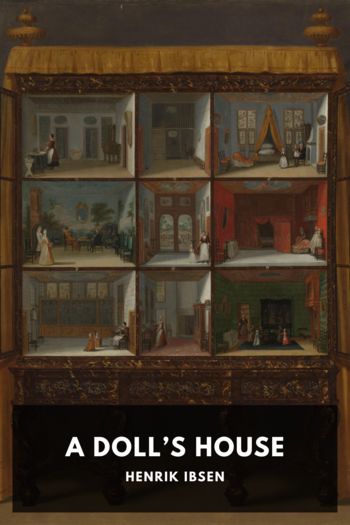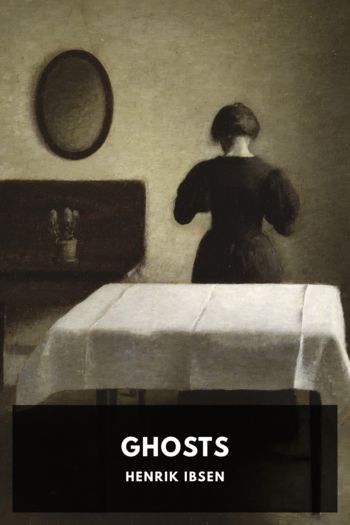Hedda Gabler by Henrik Ibsen (no david read aloud .TXT) 📕

Description
Hedda, the proud and willful daughter of General Gabler, newly married to George Tesman, returns from her honeymoon to Norway. She chafes at the prospect of a dull life in a loveless marriage until a former lover, Eilert Løvborg, returns and throws their financial future into disarray. The appearance of Hedda’s old schoolmate Thea, who wants to reform Løvborg, and Judge Brack, who wants Hedda in his power, leave her struggling to build the life she wants.
Hedda Gabler was first performed in Munich in 1891, and within months there were productions in Berlin, Copenhagen, London, and New York. It was Ibsen’s first play to be translated from proofs before performance or publication. Productions of the play have won two Olivier Awards and been broadcast in multiple countries; since 1917, it has been adapted into more than a dozen feature films in almost as many languages.
Read free book «Hedda Gabler by Henrik Ibsen (no david read aloud .TXT) 📕» - read online or download for free at americanlibrarybooks.com
- Author: Henrik Ibsen
Read book online «Hedda Gabler by Henrik Ibsen (no david read aloud .TXT) 📕». Author - Henrik Ibsen
Letters 214, 216, 217, 219. ↩
In the Ibsen volume of Die Literatur (Berlin). ↩
Dr. Julius Elias (Neue deutsche Rundschau, December 1906, p. 1462) makes the curious assertion that the character of Thea Elvsted was in part borrowed from this “Gossensasser Hildetypus.” It is hard to see how even Gibes’ ingenuity could distil from the same flower two such different essences as Thea and Hilda. ↩
See article by Herman Bang in Neue deutsche Rundschau, December 1906, p. 1495. ↩
Dr. Brahm (Neue deutsche Rundschau, December 1906, P. 1422) says that after the first performance of Hedda Gabler in Berlin Ibsen confided to him that the character had been suggested by a German lady whom he met in Munich, and who did not shoot, but poisoned herself. Nothing more seems to be known of this lady. See, too, an article by Julius Elias in the same magazine, p. 1460. ↩
Tesman, whose Christian name in the original is “Jorgen,” is described as “stipendiat i kulturhistorie”—that is to say, the holder of a scholarship for purposes of research into the History of Civilisation. ↩
In the original “Assessor.” ↩
Pronounce Reena. ↩
In the original “Statsradinde Falks villa”—showing that it had belonged to the widow of a cabinet minister. ↩
Du equals thou: Tesman means, “If you could persuade yourself to tutoyer her.” ↩
Du equals thou. ↩
Pronounce Tora and Taya. ↩
Mrs. Elvsted here uses the formal pronoun De, whereupon Hedda rebukes her. In her next speech Mrs. Elvsted says du. ↩
“Bagveje” means both “back ways” and “underhand courses.” ↩
As this form of address is contrary to English usage, and as the note of familiarity would be lacking in “Mrs. Tesman,” Brack may, in stage representation, say “Miss Hedda,” thus ignoring her marriage and reverting to the form of address no doubt customary between them of old. ↩
He uses the familiar du. ↩
From this point onward Lövborg use the formal De. ↩
In this speech he once more says du. Hedda addresses him throughout as De. ↩
“Enest hane i kurven”—a proverbial saying. ↩
Literally, “That you burn for me.” ↩
Colophon




Comments (0)